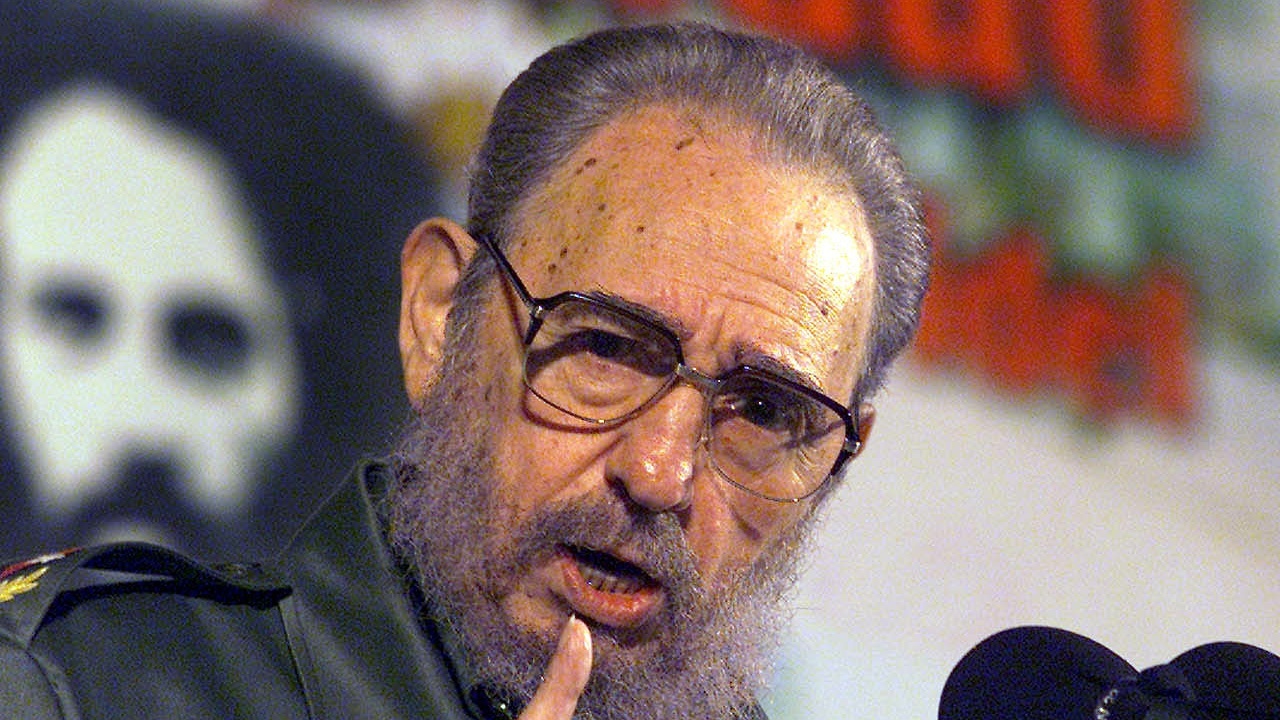
FORMER Cuban leader Fidel Castro, a defining figure of the 20th century, has died aged 90.
The socialist revolutionary’s death was announced by his brother, Raul Castro, the incumbent Cuban president, on state television late on Friday.
In his address, the elderly leader said Castro died at 10.29pm on Friday and he will be cremated on Saturday before a period of national mourning is observed.
He ended the announcement by shouting the revolutionary slogan: “Toward victory, always!”
Castro stepped aside 10 years ago after suffering a severe gastrointestinal illness, and before his 90th birthday in August he told supporters he expected to die soon.
He led a guerrilla coup in 1959 to overthrow the regime of the US-backed former Cuban president Fulgencio Batista, and remained hostile to Washington throughout his life.
As US President Barack Obama moved to heal relations with Havana, Castro responded: “We don’t need the empire to give us anything.”
When he closed the twice-a-decade congress of the Cuban Communist Party in April, he called on his countrymen to maintain socialist ideals in the face of closer ties with the US.
Castro’s last appearance in public was at an event to mark his birthday. The gala celebrated key moments in his life, including repelling the US-backed attempt to invade in the Bay of Pigs in 1961.
It was a defining moment in the Cold War, which reached its peak a year later when the world came to the brink of nuclear war during the Cuban Missile Crisis.
Castro survived numerous assassination attempts by US spies, including a plot to kill him with an exploding cigar.
But he clung on to power, enduring decades under a crippling US trade embargo.
As its greatest ally, the Soviet Union, collapsed, Cuba remained a pariah Communist state at a cost of becoming one of the world’s poorest nations.
When his brother opened the door to a thawing of relations with the US in 2014, Castro cautiously blessed the deal – but only after a month-long silence.
Castro was born on August 13 1926, in eastern Cuba’s sugar country, where his father – a Spanish immigrant – organised workers for US sugar companies.
After attending Jesuit schools, he received law and social science degrees from the University of Havana.
His first foray into violent subversion came in 1953 when he and Raul joined rebels in an attack on a military barracks in the eastern city of Santiago. Most of his comrades were killed and the brothers were jailed.
After receiving a pardon, he fled to Mexico and raised a rebel force – supported by Che Guevara and others – who in 1956 sailed to Cuba, only for most to die in a botched landing.
But after rallying support in the country’s eastern mountains, he led a revolutionary force into Havana and unseated Batista on New Year’s Day, 1959.
Declaring victory, he said: “I am not interested in power nor do I envisage assuming it at any time. All that I will do is to make sure that the sacrifices of so many compatriots should not be in vain, whatever the future may hold in store for me.”

Enjoy the convenience of having The Sunday Post delivered as a digital ePaper straight to your smartphone, tablet or computer.
Subscribe for only £5.49 a month and enjoy all the benefits of the printed paper as a digital replica.
Subscribe


